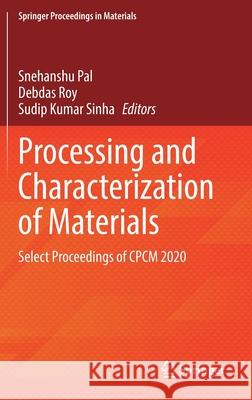Processing and Characterization of Materials: Select Proceedings of Cpcm 2020 » książka
topmenu
Processing and Characterization of Materials: Select Proceedings of Cpcm 2020
ISBN-13: 9789811639364 / Angielski / Twarda / 2021 / 300 str.
Kategorie:
Kategorie BISAC:
Wydawca:
Springer
Seria wydawnicza:
Język:
Angielski
ISBN-13:
9789811639364
Rok wydania:
2021
Wydanie:
2021
Numer serii:
000923170
Ilość stron:
300
Waga:
0.70 kg
Wymiary:
23.39 x 15.6 x 2.24
Oprawa:
Twarda
Wolumenów:
01
Dodatkowe informacje:
Wydanie ilustrowane











